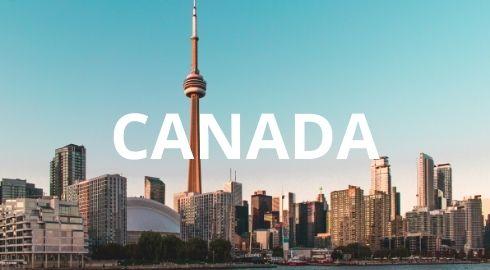Study abroad after 12th – How and where?
Looking for abroad courses after 12th? Check out the best courses to study abroad after 12th and the best destinations to go to for accessing world-class education.
What’s covered in this article?
- How to study abroad after 12th grade
- In the UK
- In the USA
- In Australia
- In Canada
- What are the requirements to study abroad after 12th grade.
- Documents required to study abroad after 12th grade.
- Exams to write to study abroad after 12th grade.
- Top universities to study abroad after 12th
- Cost of studying abroad after 12th
- Courses to study abroad after 12th
- Business and management related
- Engineering and related
- Computer Science and IT related
- Arts and related
- Health Science and related
- FAQs on studying abroad after 12th
Traditionally, students from India choose to study their undergraduate programme in India, work for a couple of years, gain experience and then go abroad for a postgraduate degree. This trend has changed in recent years, as easy access to education loans has prompted a rise in the number of students opting to study abroad after grade 12. It is not just full-time undergraduate programmes, there are a number of summer school programmes and vocational and technical training courses that can be studied abroad after completing 12th grade. You can speak to our counsellors for more details.
How to study abroad after 12th grade
The basic steps for studying abroad are as listed below:
- Based on your interest and career plans, decide on the subject you want to study abroad.
- Decide on the course you want to study. Expand your understanding about the wide variety of unique courses that are available abroad, apart from the popular ones. Keep your options open.
- Next, can look for institutions that offer these courses.
- Shortlist them based on your preferences. Students might have preferences based on the destination, location, ranking, popularity, international student populations etc. Finally, decide on a few universities to apply to.
- Once you have the final list of institutions that you want to apply to, go through their application requirements.
- Register for the competitive exams and language tests that you might have to take.
- Get your academic transcripts and certificates in order.
- Plan your finances.
- Get your Statement of Purpose (SOPs) and Letters of Recommendation (LORs) ready.
- Once you have all the necessary documents, shoot out your applications to the selected universities.
- Once you receive your offer letters and finalise on the university, you can start with the visa application process.
- Have a plan for accommodation.
- Make sure you get the visa on time to fly to your dream destination before your classes begin.
Researching the right course and university might be time consuming. When you want to factor in your preferences, it could become a tedious process.
The more refined and personalised your search is, the more painstaking it will be. Imagine finding a well-ranked institution that offers on-campus accommodation, for an affordable course with grade requirements that you can meet. Sounds ambitious? That’s what we offer with the Course Matcher Tool. The tool can do all these and more. Learn more about the Course Matcher Tool.
You can also apply directly to the university website or simply get in touch with our counsellors. They will guide you for free. Some institutions may hold a short interview or test before confirming your admission offer. Feel free to speak to us if you need assistance in sending applications to different institutes abroad.
How to study abroad in the UK

- Application: Your applications to undergraduate courses in the UK should go through the centralised system called UCAS or the Universities and Colleges Admission Service.
- The average IELTS score required for entry into undergraduate courses in the UK is an overall of 6.0 with no band less than 5.5.
- You will need to complete an International Foundation Year Programme if you do not meet the direct requirements of the degree programme. The Foundation Year Programme focuses on subject-specific learning with additional modules in English and Communication.
- Visa: Once you are accepted by an accredited UK institution, you can start the visa application process. You should apply for a UK Student Visa if you are above 16 years of age and meets all other requirements.
- Travelling abroad: Once you get your visa, book your tickets to enter the UK before the course commencement date. Our counsellors can help you with every step of the study abroad process and also put you in touch with student representatives at universities abroad. Make use of the free service for a smooth study-abroad journey.
How to study abroad in the USA

- The first step would be to identify the right course and university you would like to apply to. The Course Matcher tool can help you with that. You can always seek the help of our counsellors too.
- Once you have made your choice, you will have to make sure you clear all the exams as required by your course and university and get your documents in order. Remember that you should also figure out ways to fund your studies.
- Usually, an IELTS score ranging from 5.5 to 6.0 is the basic English proficiency score required for admission.
- Once you get accepted by an SEVP-certified institution, you can apply for a visa to study in the USA. It is advisable that you prepare for the visa interview questions beforehand.
- Once you have your visa, you can start planning your journey to the U.S. Our counsellors will be able to help you at every step towards realising your study abroad dreams.
Usually, an IELTS score ranging from 5.5 to 6.0 is the basic English proficiency score required for admission.
How to study abroad in Australia

- Research about the country, its states, climate, cost of living, visa requirements and other practical information.
- Check the academic and language requirements and apply to institutions.
- Submit your application.
- After you are accepted into a programme, you can apply for Australian Student visa.
Australia offers a unique proposition; Technical and Further Education (TAFE) institutions offer a variety of vocational and industrial training programmes that range from six months to two years. In fact, every year, a number of students from cities like Punjab, Mumbai, Chandigarh and the National Capital Region go to Australia to enrol in a TAFE institution. On completing these programmes, they may choose to join a relevant university programme directly in the second year of study. In addition to these TAFE programmes, regular entry to an undergraduate degree at an Australian university is based on the applicant’s English language skills and score in the 12th Grade. Remember that you can always get guidance from our experts if you are interested in studying abroad after 12th, in Australia.
Know about the cost of studying in Australia.
How to study abroad in Canada

- The first step in any study abroad journey is to identify the course and university you want to apply to. Our Course Matcher, that can help you identify the best course and university based on your qualifications and preferences.
- Once you have shortlisted the universities to apply to, check which are the intakes during which your course is also available. Based on this information, you can start preparing your application. Ensure you clear all the required exams and get ready with the documents.
- Once you are accepted by a Designation Learning Institution, you can start the visa application process. You will receive an admission letter from the institution on being accepted for the course. With this letter, you can apply for a Canadian Study Permit. Note that the study permit is not a travel document. You will need a valid visa to travel to Canada. For example, a temporary resident visa.
- Once you get your visa, book your tickets to enter Canada before the course commencement date.
IELTS score requirements will vary based on universities and courses. Generally, a minimum of 6 – 6.5 is required.
What are the requirements to study abroad after 12th grade?
- Grade 12 completion, preferably with good grades
- English language proficiency (It is necessary in countries like the UK, the USA, Australia and Canada.
- Clearing competitive exams if required by your course (For example, LSAT for Law courses)
- A valid passport – working on a passport after getting the offer letter from the university will be difficult)
- Meet the age requirements
- Finances to support your education abroad. (Check out the ways to fund your studies abroad).
- Meeting the course and university specific requirements.
Which documents are required to study abroad after 12th grade?
- Academic transcripts
- English language proficiency test scores – you should have the test results of IELTS, TOEFL or any other language test accepted by your institution to submit as proof of your proficiency.
- Proof of finances – You should be able to submit proof that you will be able to manage your study and living expenses in a foreign land. These include bank statements, scholarship documents, a letter from a sponsor etc.
- Standardised test scores – If you have to take any competitive exam to be eligible for admission at the university, you have to keep this ready.
- LOR or Letter of Recommendation – Most institutions ask for 2 Recommendation Letters from the candidates. Go through our article for more tips on getting an LOR ready.
- Statement of Purpose – Also known as a personal statement, it should talk about your goals and reasons for applying for the particular course and university.
- CV – Your Curriculum Vitae should be submitted along with your application.
These are the basic requirements. Please check with our counsellors or the institution for any course specific requirements that you might have to meet.
Which exams should you write to study abroad after 12th grade?
Let’s split the tests into language tests and other standardised tests. Note that you won’t have to take all these tests. It depends upon your preferences and course requirements.
Language tests:
IELTS: International English Language Testing System
TOEFL: Test of English as a Foreign Language
PTE: Pearson Test of English
DET: Duolingo English Test
CAE: Cambridge English: Advanced
Standardized tests:
SAT: Scholastic Aptitude Test
LSAT: Law School Admission Test
MSAT: Medical College Admission Test
Free career consultation feel free contact us at +91-8103000664.
#Blog #Career #Class12 #India # #Question #Education #HighSchool #Graduate #Counseling
Read our more BLOG Here.



Recent Comments